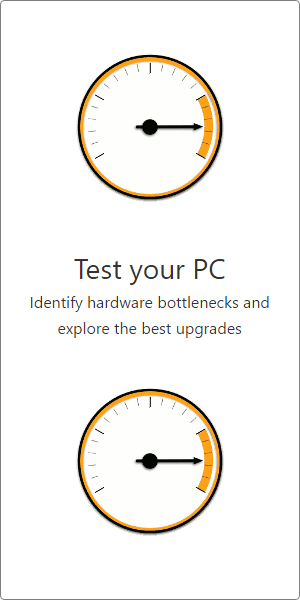Effective Speed
+138%
Poor: 86%
Great: 101%
SPEED RANK: 73rd / 713
Poor: 36%
Great: 41%
SPEED RANK: 152nd / 713
| Effective 3D Speed
Effective 3D Gaming GPU Speed |
93.7 % | Hugely faster effective speed. |
39.3 % |
Average Score
+131%
Overclocked Score
+161%
Value & Sentiment
+∞%
Nice To Haves
+115%
Conclusion
Average Bench 93.7%
Average Bench 39.3%
User Builds
412,133
2,080
Systems with these GPUs
Top Builds that include these GPUs

 GPU
GPU
